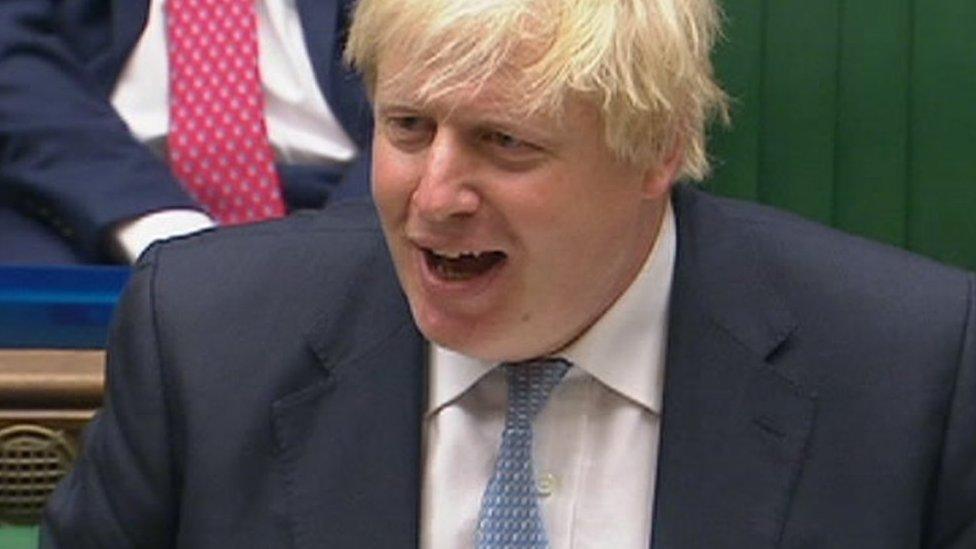Brexit law 'will strengthen devolution', claims UK minister
- Published
- comments
David Lidington said the "vast majority" of EU powers would start off in Edinburgh, Cardiff and Belfast
Changes to a proposed Brexit law on the return of powers from Brussels will "strengthen and enhance" devolution, a UK government minister has pledged.
The Welsh and Scottish governments have claimed the EU (Withdrawal) Bill amounts to a Whitehall "power grab".
Cabinet Office Minister David Lidington said he was offering "very big changes" to the law to settle the row.
Wales' First Minister Carwyn Jones said he wanted further progress that went beyond "warm words".
The bill aims to ensure the rules currently set by European law still apply in the UK after Brexit, while giving the UK Parliament power to change them.
But the Welsh and Scottish government have objected to the current proposals saying they amount to a "power grab" which undermines devolution.
Under the plans, powers in devolved areas like farming are set to return to Westminster rather than Cardiff, Edinburgh and Belfast.
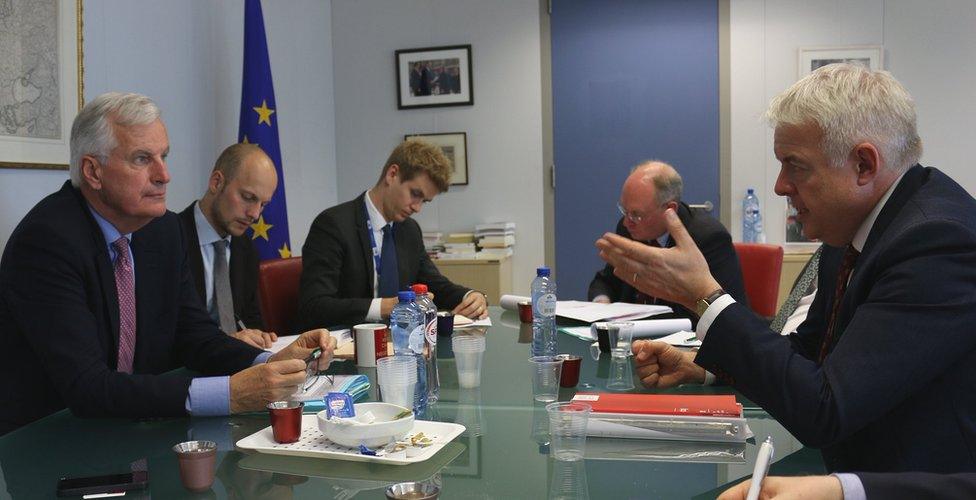
Carwyn Jones (R) presses the case for a "soft Brexit" with the EU's chief negotiator Michel Barnier (L)
After a meeting of UK, Welsh and Scottish ministers in London on Thursday, all three governments said progress was being made but further discussions are needed to try to reach agreement.
The UK government has said it intends to change the bill and has proposed that the vast majority of the 64 powers returning from the EU will now go to the devolved administrations.
In a speech at the Airbus plant in Broughton, Flintshire, on Monday, Mr Lidington said that the new offer represents a "significant step forward in these negotiations".
He said: "This offer puts beyond doubt our commitment to a smooth and orderly departure from the European Union, in a way that doesn't just respect the devolution settlements, but strengthens and enhances them."
Mr Lidington also said the UK's "common market" must be maintained post-Brexit and dismissed the idea of independence for nations, saying the UK works better in "unity".
"By retaining UK frameworks where necessary we retain our ability not only to act in the national interest when we need to, but to do so with a unity of purpose," he said.
Food labelling and hygiene rules were one area where powers could be retained within a UK-wide framework, Mr Lidington suggested.
"Four different sets of rules would only make it more difficult and more expensive for a cheesemaker in Monmouthshire to sell to customers in Bristol or for cattle farmers in Aberdeenshire to sell their beef in Berwick-upon-Tweed," he said.
First Minister Carwyn Jones, currently visiting the USA, said: "I welcome the commitment of the UK government to continue to work with us on their EU (Withdrawal) Bill.
"However, as currently drafted, the Bill allows the UK government to take control of devolved policy areas, such as farming and fishing, once the UK has left the EU.
"This is an unacceptable attack on devolution in both Wales and Scotland.
"We now need further progress that goes beyond warm words and I hope the 'very big changes' promised in the speech equate to sensible amendments to the Bill which respect devolution."
- Published22 February 2018
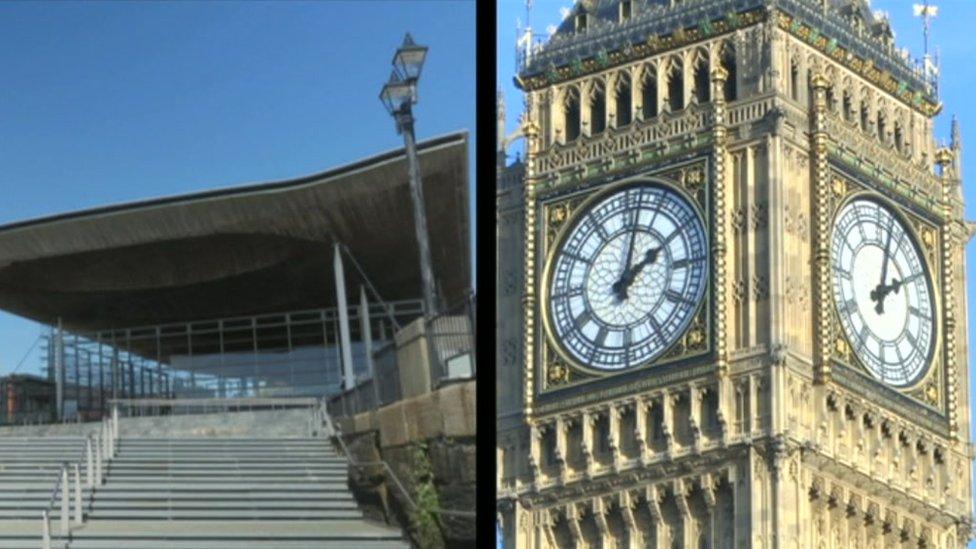
- Published13 July 2017
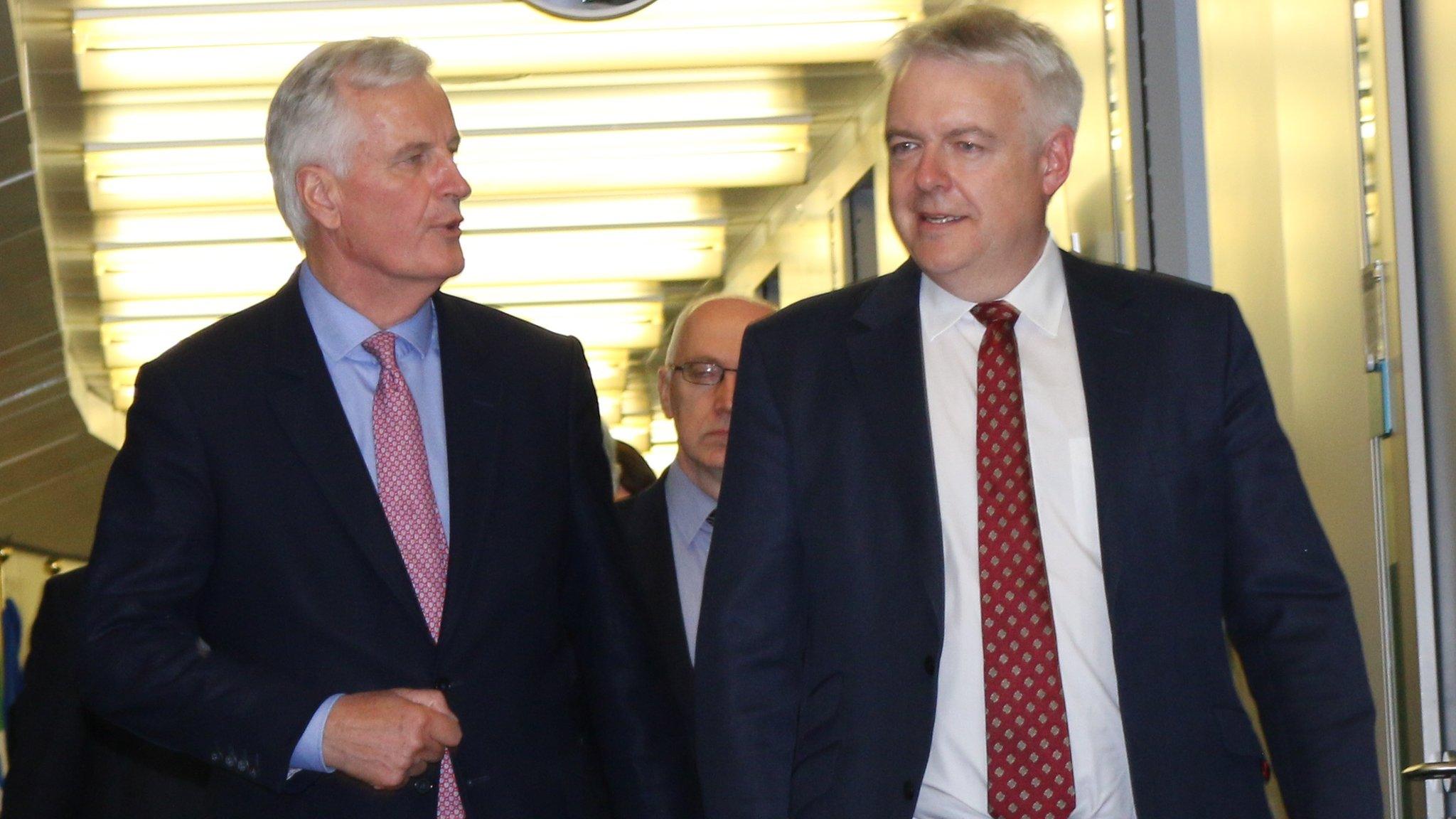
- Published13 July 2017
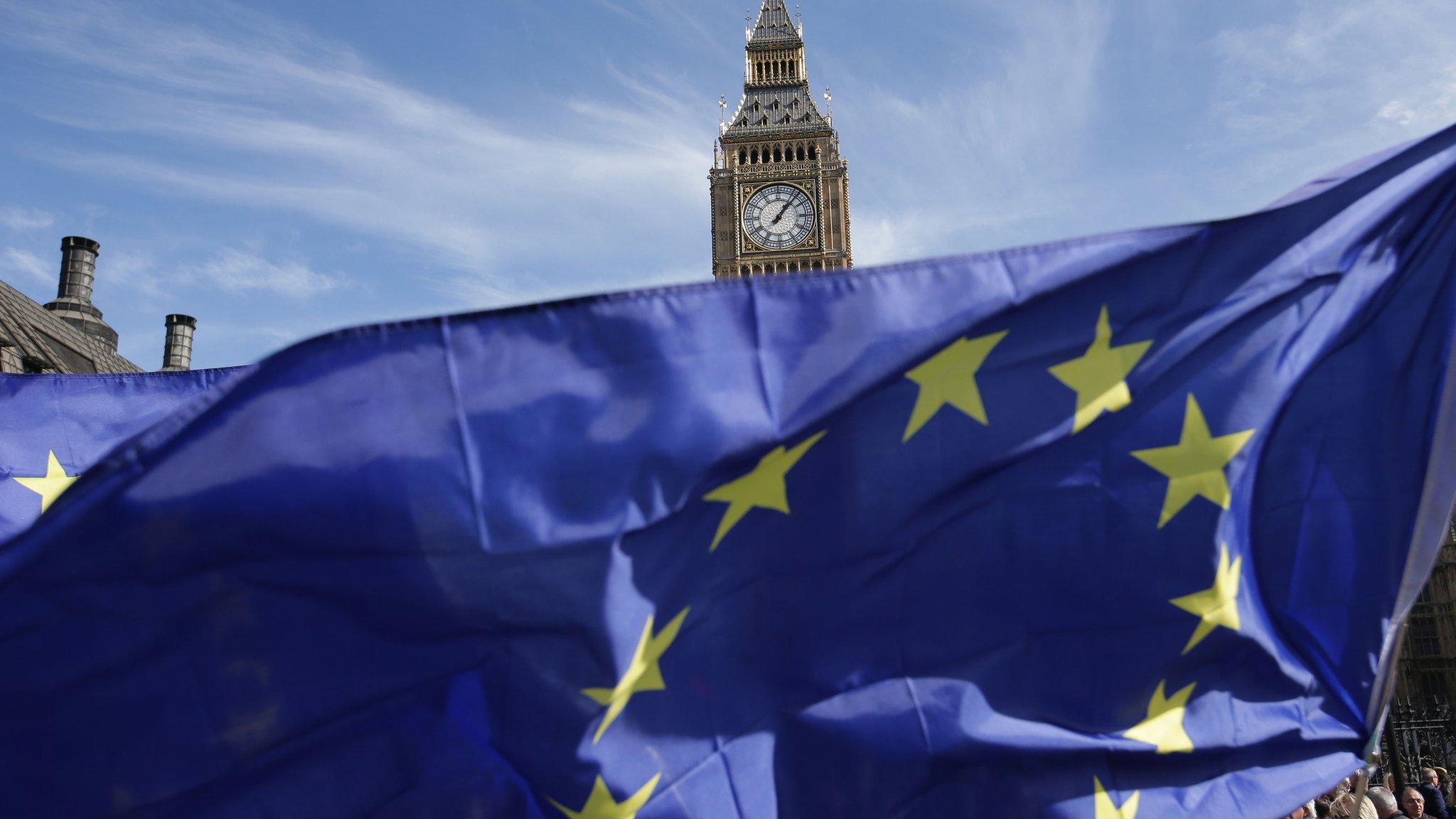
- Published11 July 2017
